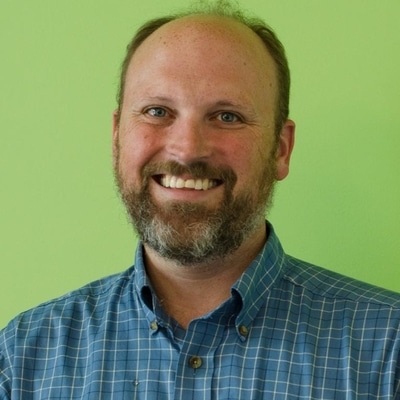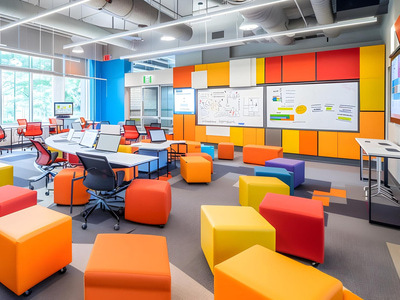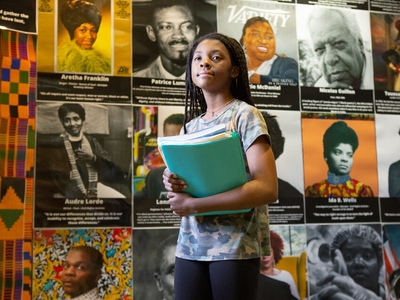New Designs for School
Learning and Loving Math: Creating a Schoolwide Math Culture
Topics
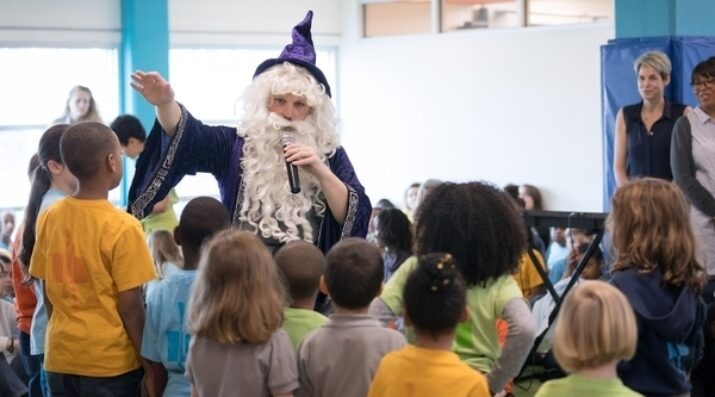
We’ve all had the experience of truly purposeful, authentic learning and know how valuable it is. Educators are taking the best of what we know about learning, student support, effective instruction, and interpersonal skill-building to completely reimagine schools so that students experience that kind of purposeful learning all day, every day.
"I'm not a math person." This fixed mindset about math saturates our culture but Two Rivers Public Charter School provides a counternarrative for learning and loving mathematics.
The Organization for Economic Cooperation and Development’s (OECD) Programme for Student Assessment (PISA) just released their most recent results. The PISA, given to 15 year olds across the globe every three years, is a bellwether for the health of our education systems. As in years past, the United States scored above the international average in reading and science, but stubbornly continues to score below the average in math.
While these scores are disheartening, they aren’t surprising. The United States has a math culture problem. We talk about programs to boost math performance with more rigorous standards, innovative curriculum, and increased instructional hours. But we cannot begin to address the performance of our students until we acknowledge and address the deep rooted challenges that our beliefs and feelings about mathematics have on our children.
The Roots of the Problem: Fixed Mindsets and Irrelevant Mathematics
Specifically, as Carol Dweck’s powerful ideas around developing growth mindsets have taken hold in the education community at large, the area of mathematics remains for American culture and for too many educators a place where a fixed mindset isn’t just OK, it is the norm. We seem to believe in the fallacy that some people are just math people and some are not. As a case in point, consider for a second how many times that you have heard a teacher or parent say, “I’m not a math person,” or, “I don’t do math.” Comparatively, how many times have you heard those same adults say, “I’m not a reading person,” or, “I don’t read”? Most adults, teachers included, grew up in this culture and believe that they aren’t math people. They haven’t had opportunities to cultivate a growth mindset about mathematics.
However, giving adults growth experiences with mathematics is often an uphill battle. Many adults operate under the assumption that math is too complex and challenging for them to learn at this point. So they shy away from opportunities to engage with math. More importantly, even if they believed that they will be able to understand the math, it is viewed as irrelevant to their lives. Unfortunately they have a point. If you aren’t a middle or high school math teacher, when was the last time you needed to factor a polynomial?
Thus a perfect storm of fixed mindsets and irrelevant mathematics have left many of us damaged from our school experiences with mathematics. Not surprisingly the messages that our students hear, over and over again, is that math is for the rarefied few that “get it.” In a self-fulfilling prophecy, they live up to these messages and we are leaving too many of our children behind.
If the culture in which we are raising our children is saturated with these fixed mindset messages about mathematics, counternarratives must be louder and more pervasive to overcome the overwhelming impact of these negative beliefs. We must provide—not only for our students but also the adults in their lives—opportunities both to hear growth mindset messages and to experience the growth and the learning of mathematics that happens with effort.
Shifting the Culture of Mathematics
At Two Rivers Public Charter School in Washington, DC, we have undertaken a commitment to shifting our school’s mathematics culture. At the heart of this shift is providing everyone in our community with a counternarrative about mathematics learning. Everyone can learn mathematics and there is deep relevance to mathematics in our lives.
Specifically, we talk positively about mathematics every chance we get and we provide regular experiences for students and adults to play with mathematics. The messages are simple, clear and powerful. Inspired by Jo Boaler’s work at YouCubed, we name that:
- Everyone can develop deep conceptual understanding of mathematics.
- Mistakes in math grow your brain.
- Math is about finding and utilizing patterns not just computation.
In addition, we talk openly about the usefulness of math in more ways than applying it to solve everyday problems. We explore how math is a valuable tool in developing critical thinking and problem-solving skills. In addition, we openly seek out and provide everyone in our community opportunities to experience the pure joy of playing with mathematical ideas. The relevance of mathematics then is not just in how it is a useful tool for accomplishing some task, but like reading a great novel, doing mathematics is valuable for its own sake.
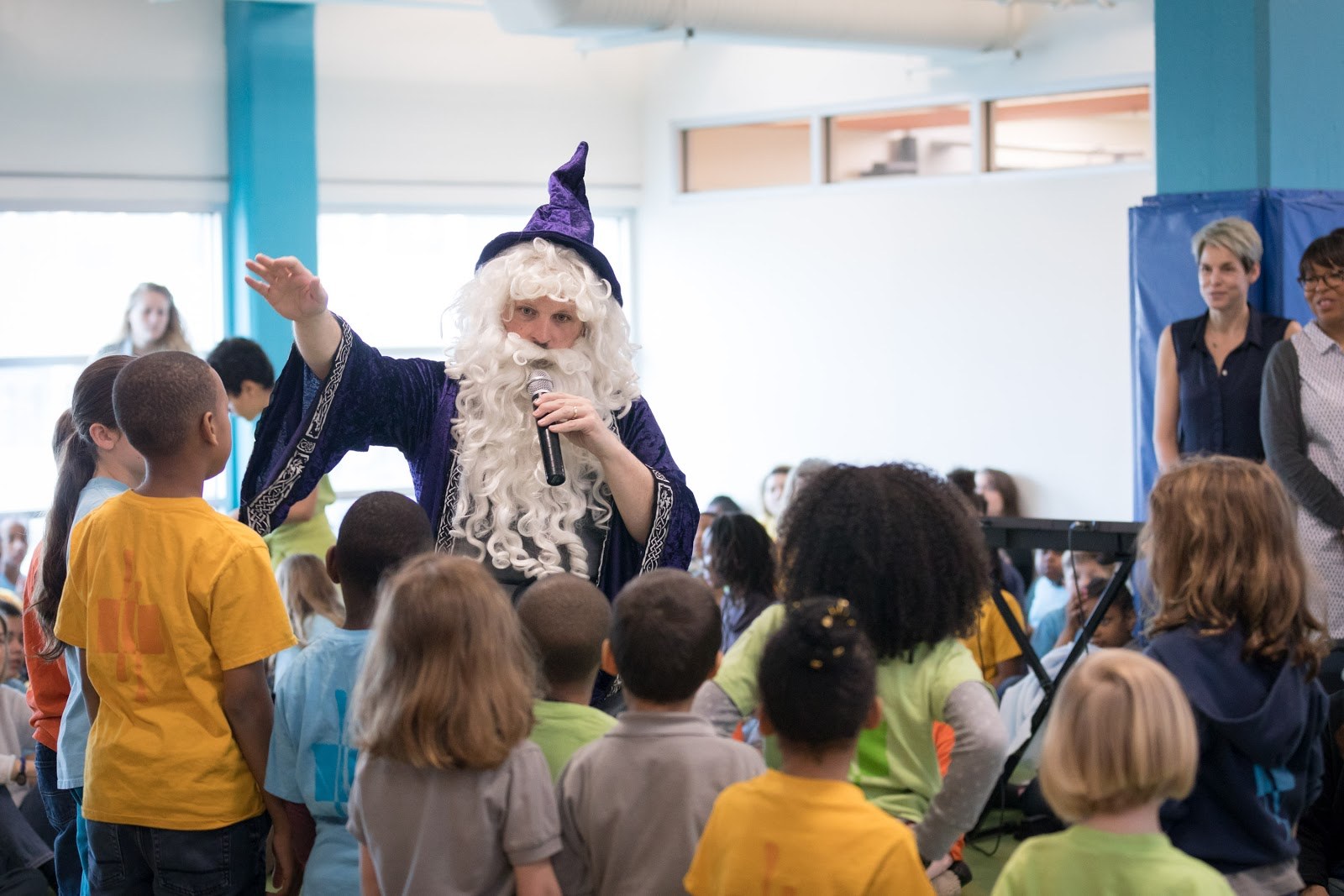
Courtesy of Two Rivers Public Charter School
We take concrete steps at Two Rivers to deliver these messages by infusing creative mathematical problem solving into the culture of the school. These steps include the Mathemagical Wizardry Prize, an annual math festival, and the telling of our math stories. With the Mathemagical Wizardry Prize, a staff member dressed as a wizard introduces a problem each week for the whole community to solve. These problems are routinely solved by staff and family members in addition to students. The annual math festival is an opportunity for teachers, students, and families to come together and play math games together. In addition, we work with all of our teachers and many of our students to tell their math stories. We encourage everyone to be honest in exploring their feelings and beliefs about math and how we can counter their negative experiences with mathematics.
Improving the mathematics learning of all of our students and particularly our most marginalized students will require a great deal of effort and more than a single strategy. Rigorous standards, creative problem-centered curriculum, and more time working with math certainly are all parts of the puzzle. However, we also need to change the culture of mathematics in our schools and in our communities if we want to make lasting change. This means providing a strong counter narrative to the fixed mindset arguments that are so prevalent.

